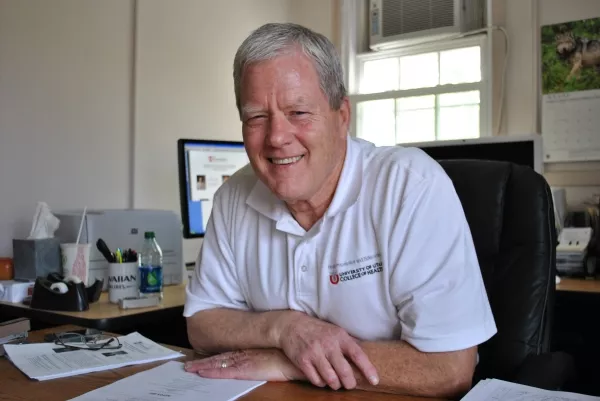
- Rachel Piper
- Glenn Richardson
Glenn Richardson is a former college football player and high school football coach who is now the director of graduate studies in the department of health promotion and education at the University of Utah, focusing on the concepts of resilience and resiliency. Richardson organized the U’s first conference on integrative health and complementary medicine (Sept. 7-8, go here for more information and registration; City Weekly readers qualify for the early-bird fee of $125), geared both to health-care professionals and consumers. Speakers will explore everything from the placebo effect, nutrition and integrative cancer treatment to tai chi and acupuncture.
How is this conference different from other health-care events?
I think it’s the first time we’ve come together for something like integrative health. This brings together upper campus—the medical center, the health-science center, physicians, nurses, pharmacists—with people from psychology, social work, educational psychology.
Are perspectives on health changing?
We’ve gone from pre-17th century, when everything was treated in a holistic way, to suddenly, “Here’s just the physical; the mind and spirit you get from the church, or whatever.” Now, it’s becoming more than just physical—the whole body/mind/spirit perspective.
How can integrative health help people?
It’s a positive approach. Many integrative-health and complementary practices are going to keep you out of the of doctor’s office in the first place. When you think about doctor visits, some estimates suggest that 80 percent of doctor visits are stress- and lifestyle-related. The best complementary health-integrative strategy on the planet is exercise. That’s the magic formula for almost everything. And then you work up to nutrition, getting enough sleep and controlling stress, and by the time we go through the 180-some strategies listed on the National Center for Complementary Alternative Medicine site, now we’re doing things like the music therapies, the imageries, meditation.
So, if my doctor tells me my condition is caused by stress, what should he or I do after that point?
Patient education needs to evolve dramatically. Part of the problem is that people in medicine know what’s going on with all of the tests and everything, but being able to know what’s going on as a consumer is a challenge. They should sit down with someone, assess what your behaviors are and make a lifestyle plan to prevent this from happening again. Stress is a factor in almost every disease.
The other purpose of integrative health is improving the doctor’s office experience itself. If you’re more relaxed, you’re going to get better readings, you’re going to be able to choose options or treatments that are more in align with your rational thinking. And with the health-care costs, if we can get people out of the hospital even a day earlier, it’s going to be a lot better. There are studies of two patients, same treatment, same hospital beds. One gets out in two or three days. One lingers five or six days. In a case study, there was a Native American who came in from the reservation and had a bypass surgery. He just couldn’t get better until they brought in the shaman—the medicine man.
What are some alternative or complementary approaches to health care?
We’re not BYU, but we are addressing spirituality. Certainly, talking motivating forces—God is one view of finding strength beyond yourself. But people who are atheists, you can talk about the collective unconsciousness. String theory, Eastern healing arts, all these things talk about how we are walking, living and breathing in a sea of enlightenment and hope. We just have to be able to become humble or submissive enough to be able to receive it.
There are some really goofy things. Part of this is to discern between what has no evidence, are very, very speculative, are very placebo—things are happening because they believe in this crystal, etc.
What is resiliency?
Resiliency is understanding the process of how people embrace stressors and life events, go through disruptions, struggle a little bit, but learn how to become stronger because of it. That’s resiliency. The fun part of this is what we call resilience—the force or motivating drive that helps people go through the disruptions in life, and do it with energy and optimism. We’ve identified a bunch of these energizing, motivating forces to help people thrive through adversity.
This process here is the journey to how you access those things. A lot of people now are talking about there are moments when all of a sudden you change your life. It’s a one-shot deal. And that’s where a lot of these complementary-medicine strategies happen. It can happen with medication, music, imagery—some people go to a movie and come out and say, “I’m changing.”